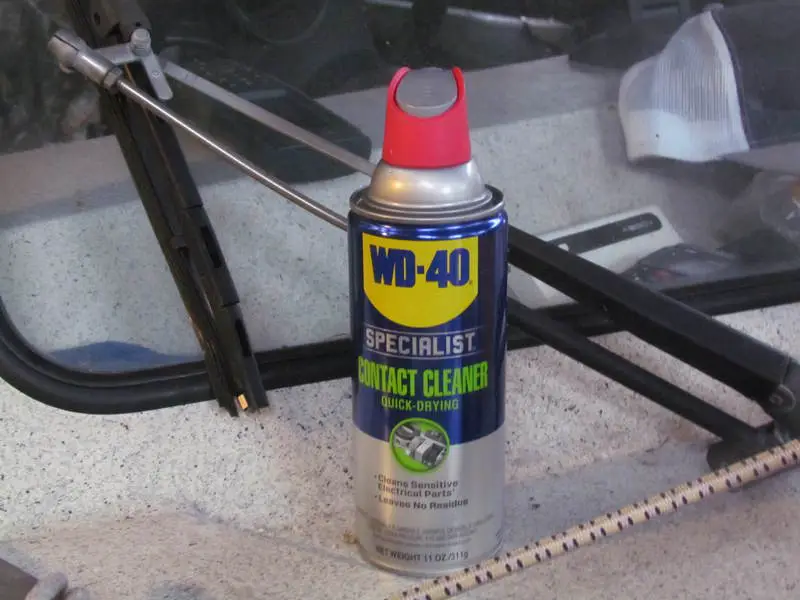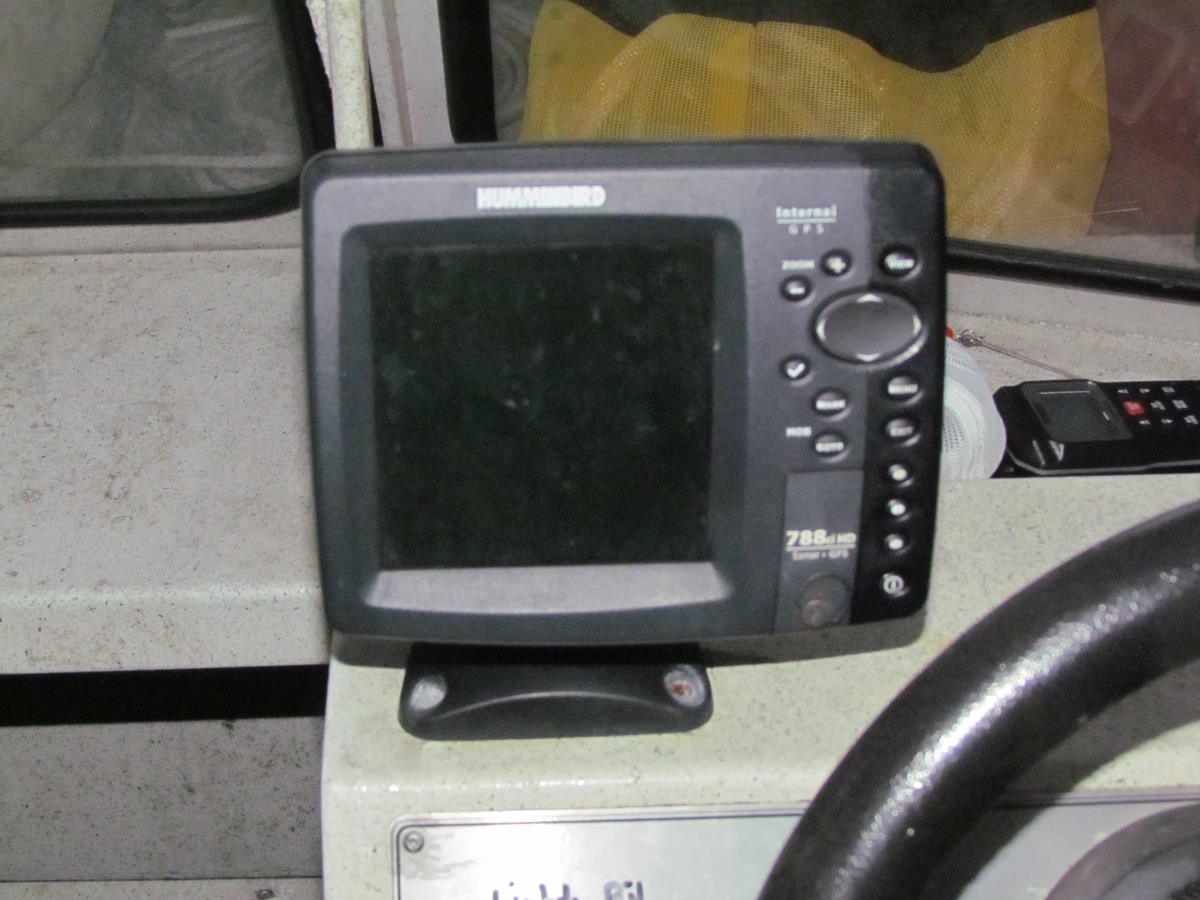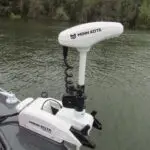Fish finders are technical and complex gadgets fish lovers use to locate fish and identify the best fishing area, but they don’t come cheap. One of the most concerning things that can happen to a fish finder is it suddenly turning off while starting your motor. Why does this happen?
If a fish finder turns off when starting the motor, it’s likely due to a weak battery, voltage dropping, or faulty connections. Solutions include replacing the battery, installing a voltage regulator, and checking all the connections between the finder and the battery for loose wires or corrosion.
In this article, I’ll take you through all the issues that can cause your fish finder to turn off when starting the motor, and I’ll also provide some helpful solutions. Let’s dive right in!
Note: most links in this article are Amazon.com Affiliate links, see Affiliate Disclosure, thank you.
1. Voltage Drop
A voltage drop occurs when an electrical current travels through a wire from one point to another. The voltage drop indicates how much voltage is lost between the two points. In other words, it measures how much energy is lost in transferring electricity along a wire or circuit.
When you start the motor, your fish finder shuts off when the voltage drops. Finders switch to a low-power shutdown mode if the voltage falls below the minimal level needed to operate efficiently.
This happens when the motor uses more power from your battery than it should. In turn, it leaves less voltage to accommodate the fish finder.
A common explanation is that the voltage required to run the fish finder is being lost through numerous factors that significantly contribute to this spontaneous shutdown, including:
- Loose connections
- Faulty cables
- A worn-out battery
This is a recurring problem with older boats.
The voltage drop in the system causes the fish finder to shut down or act erratically, and you can verify this by checking the voltage at the battery terminals when you turn on the ignition.
How To Fix
Firstly, you should take a look at the battery.
An excellent way to look into this is to get it load-tested. Your battery most likely initially had a suitable voltage, but the load test will reveal whether it can deliver any amps. If your battery is old, it will probably need to be replaced.
If everything seems in working order, there are a few other options you can explore:
- Install a voltage regulator: This helps to maintain a steady 12-14 volts throughout the boat’s electrical system. It will help prevent sudden voltage drops during operation and keep your fish finder running smoothly.
- Install a voltage booster: This device will boost the voltage from your alternator so that it’s closer to what your fish finder requires for proper operation.
- Adding more batteries: Doing this will help increase the overall capacity of your system and provide extra power for the high-draw accessories. However, the system should be able to run off a singular battery.
2. Connection Fault
When a boat’s fish finder turns off when starting the engine, it could be caused by a connection fault to the battery.
The most common reason for this problem is loose wire connections between the transducer and the fish finder or from the transducer to the battery terminals.
Sometimes a tiny bump will cause one or more of these wires to come loose, but usually, it’s just age and wear that causes these connections to loosen up over time.
That said, if you have a voltmeter and know how to use it, you can test for it and save money by diagnosing it yourself. Find yourself a voltmeter like Pulsivo’s Digital Multimeter from Amazon. This tool can supply a range of valuable applications, such as measuring:
- AC and DC voltage
- Resistance and current
- Circuit continuity
- Battery quality
If the connections on your battery are corroded, they may not make good contact with one another. This could cause a shortage in your system, resulting in a power draw on your vessel’s electrical system. The result is often a drained battery.
How To Fix
It can be frustrating when you have a problem with your fish finder turning off while fishing. This is especially true if the unit has many features you like. However, there are some simple things that you can do to fix this problem yourself:
- Check the battery connections. If they are corroded or dirty, this could be causing your unit to shut off.
- Make sure all the connections are clean and tight before trying anything else. If any sign of corrosion is present, use a toothpick or similar tool to clean this away before reconnecting everything.
- If there’s no visible corrosion on your batteries or cables, then there’s likely some sort of short in your system.
- Using a voltmeter, check for voltage at each cable connection to help diagnose problem areas.
- Check your wiring for loose connections and replace any damaged wires or connectors immediately. You can check this by removing the top cover and inspecting the connection between the cables and their respective terminals.

You can also spray some electrical cleaner on the terminals. For light cleanup or occasional maintenance, WD-40 contact cleaner is effective and easy to use. For saltwater environments and heavy cleanup try Caig Laboratories DeoxIT electrical cleaner from Amazon. This cleaner enhances conductivity and helps protect all the electrical connections to reduce possible wear or abrasion in the future.
3. Weak Battery
The battery is the heart of your fish finder. It provides power to all the electronics in your sonar unit and allows you to see the world beneath your boat on the screen.
A weak battery does not hold charge appropriately and can cause your fish finder to turn off at the most inconvenient times.
Here are some possible causes of a weak battery:
- The battery is old. It may need replacing if your battery is over three to four years old. Batteries lose their capacity over time, and this can cause problems with your fish finder turning off when starting the motor or even when you are using other electrical items, such as lights.
- There are leaks in the system. Leaks drain the battery power faster than usual (e.g., water entering through a faulty seal).If any moisture in the system comes into contact with any electrical item (including batteries), it can cause an electrical short circuit that drains power very quickly.
- Not using your battery enough. Batteries will become weak and unable to hold a charge very long when they are not used for a while. This is especially true if you live in a cold climate or store your boat for long periods without using it.
An excellent way to avoid this problem is to use your boat regularly and keep the battery fully charged whenever possible.
How To Fix
The first step in diagnosing a weak battery is checking the voltage on each battery. The battery should be 12 volts or higher. If it’s less than 12 volts, it will be time to replace the battery.
Ultimately, when batteries have been drained and are not able to provide enough power to run the fish finder and other electrical equipment at the same time. The solution is to replace the battery with a new one.
Here is an excellent YouTube video explaining how you can replace your boat’s battery:
Summary
Whatever the case, I hope this article gave you some helpful information on troubleshooting your fish finder problem.
Contact your nearest mechanic if you are unsure about doing something or do not know how to fix a particular issue.
Otherwise, with proper maintenance and following the manufacturer’s instructions, your fish finder should work flawlessly for years to come.




[…] kind of connectivity going, especially when you are way out there on the water where there may be limited or intermittent connectivity, the fish finder will use a lot of power. With an excellent fish finder battery to back it up, it […]